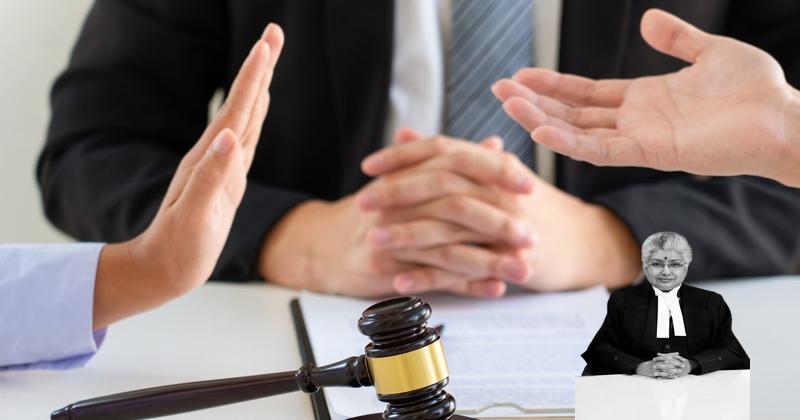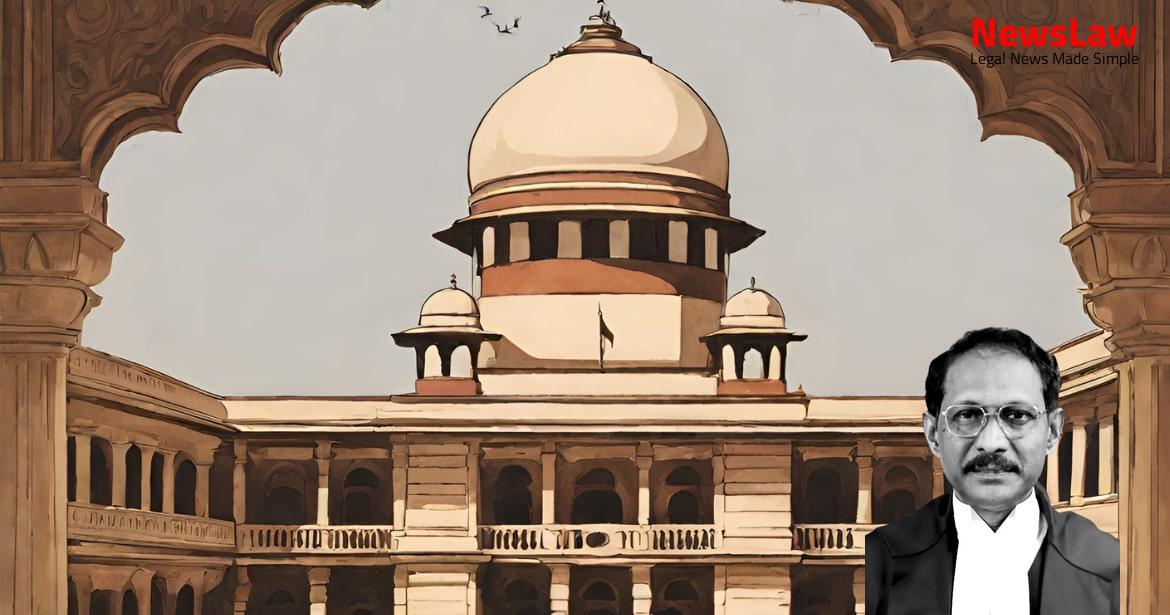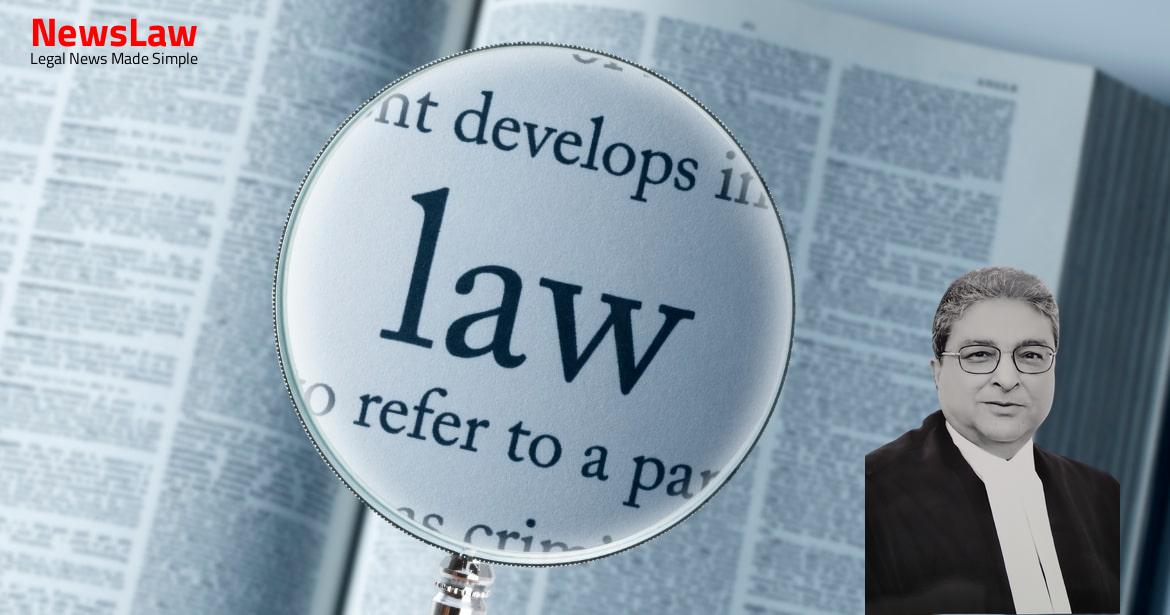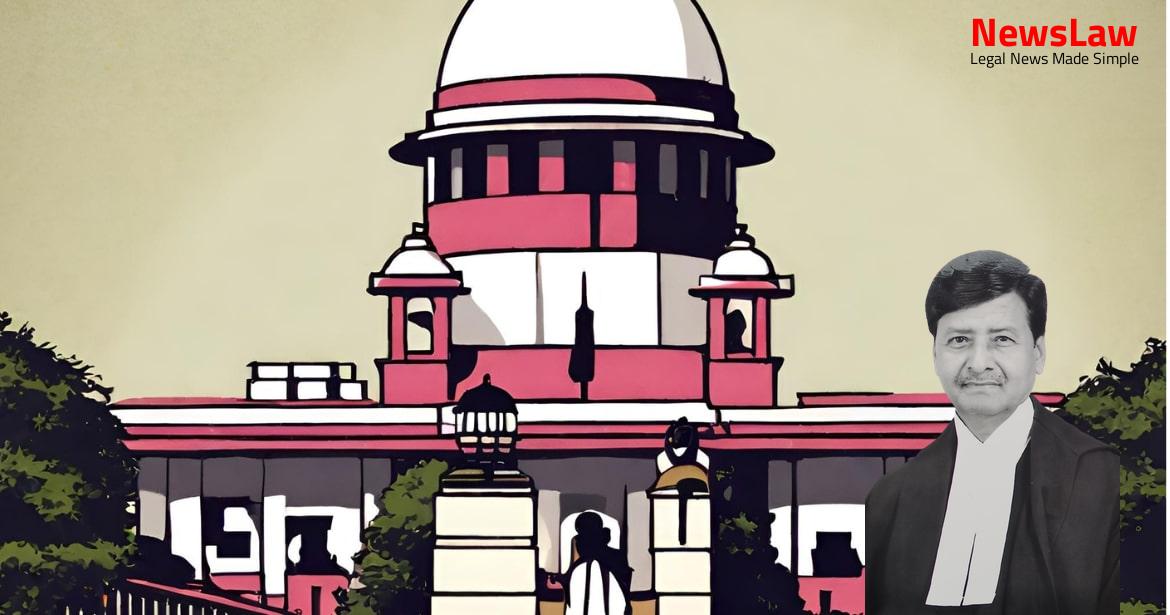Briefly stated, the facts of the case according to the Complainant-Respondent No.2 herein are that he got registered an FIR bearing No.186/2018 on 09.06.2018 at around 21.45 at P.S. The Complainant filed an application before the Additional Sessions Judge Court No.1, Hathras in Case Crime No.186 of 2018 under Section 319 Cr.P.C. The High Court by way of the impugned Order dated 03.01.2023 dismissed the same and affirmed the Order passed by the Additional Sessions Judge Court No.1, Hathras in Case Crime No.186 of 2018 dated 23.09.2022, to summon the appellants. This is a case where by the impugned order the High Court has dismissed the revision challenging the order passed under Section 319 of the Cr.P.C. Therein, he pointed out that this Court has found that since a person who is added under Section 319 Cr.P.C. Nagamuthu, learned senior counsel, at the outset submitted that paragraph 9 of Jogendra Yadav has categorically recorded that when an accused is summoned in exercise of the power 4 under Section 319 of the Criminal Procedure Code, 1973 (Cr.P.C’ for short), such an accused has to be heard before being added as an accused to face trial; that such an accused has a further right of hearing if he challenges the summoning order before the High Court and further before this court. in SLP (Crl.)
No.3199/2021(‘Ram Janam Yadav’), wherein this Court had directed that an Amicus Curiae be appointed to consider the question which emanated from the judgment in Jogendra Yadav and to refer the matter to a larger Bench, to decide: (1) as to, whether, an accused, who is impleaded under Section 319 of the Cr.P.C., is entitled to file an application for discharge and (2) whether, a person before being impleaded as an accused is entitled to prior hearing or not.
is one to proceed with the trial on the basis of the evidence already recorded and that the satisfaction of the Sessions Court/Trial Court in such a case would be an objective satisfaction and not a subjective one and, therefore, in order to ensure that the right of the persons summoned to be added as an accused is enforced, it is necessary that such a person is heard before his addition as an accused to be tried along with other accused already facing trial. No protest petition was filed as against the said final report. Learned senior counsel appearing for the State drew our attention to paragraph 2 of Jogendra Yadav to contend that in the said case, the Additional Sessions Judge had in fact issued notice 7 to the appellants therein to show cause as to why they should not be added as accused.
In order to buttress this submission, it was pointed out that in the order passed by this Court subsequently in the case of Ram Janam Yadav, the reference to a larger Bench was not taken forward by noticing that in the said case, it was not necessary to refer the questions of law to a larger Bench as in that case also, the persons who had been summoned as accused were in fact, given an opportunity of being heard and hence, the aforesaid two cases would turn on their own peculiar facts. Learned counsel appearing for the complainant also supported the arguments of the learned senior counsel appearing for the State 8 and contended that if the submissions of learned senior counsel for the appellants are to be accepted, then the entire trial of the accused would be disrupted and there would be a trial within the trial, a concentric circle, and there can be no conclusion of a trial on a timely basis which would vitiate the salutary principle of speedy trial which is recognized under Article 21 of the Constitution of India as well as the right of the victims to get justice. may come out with their own pleas and contentions which would have to be first considered by the Trial Court/Sessions Court and this would not only cause delay in the progress of the main trial. Discharge.-
If, upon consideration of the record of the case and the documents submitted therewith, and after hearing the submissions of the accused and the prosecution in this behalf, the Judge considers that there is not sufficient ground for proceeding against the accused, he shall discharge the accused and record his reasons for so doing. (4) Where the Court proceeds against any person under sub-section (1), then – (a) the proceedings in respect of such person shall be commenced afresh, and the witnesses re-heard; 10 (b) subject to the provisions of clause (a), the case may proceed as if such person had been an accused person when the Court took cognizance of the offence upon which the inquiry or trial was commenced.” Section 227 Cr.P.C.
On the other hand, under Section 319 Cr.P.C., a person who has not been named as an accused is summoned to be tried along with other accused while section 227 Cr.P.C. The relevant paragraphs in Hardeep Singh can be crystallised as under: – (i) The Constitution Bench of this Court was concerned with three aspects: firstly, the stage at which powers under Section 319 Cr.P.C.
Also Read: https://newslaw.in/?p=655
Such cognizance can be taken under Section 193 CrPC and the Sessions Judge need not wait till 12 “evidence” under Section 319 CrPC becomes available for summoning an additional accused.
Materials coming before the court in course of such inquiries can be used for corroboration of the evidence recorded in the court after the trial commences, for the exercise of power under Section 319 CrPC, and also to add an accused whose name has been shown in Column 2 of the charge-sheet. Though under Section 319(4)( b ) CrPC the accused subsequently impleaded is to be treated as if he had been an accused when the court initially took cognizance of the offence, the degree of satisfaction that will be required for summoning a person under Section 319 CrPC would be the same as for framing a charge [Ed.
The difference in the degree of satisfaction for summoning the original accused and a subsequent accused is on account of the fact that the trial may have already commenced against the original accused and it is in the course of such trial that materials are disclosed against the newly summoned accused. A person not named in the FIR or a person though named in the FIR but has not been charge-sheeted or a person who has been discharged can be summoned under Section 319 CrPC provided from the evidence it appears that such person can be tried along with the accused already facing trial. Emphasising on the word “course” used in Section 319 Cr.P.C., it was observed that the said power can be invoked under the said provision against any person from the initial stage of inquiry by the court up to the stage of conclusion of the trial. (iv) Elaborating the nuances of Section 319 Cr.P.C., it was further observed in Hardeep Singh that what is essential for the purpose of Section 319 Cr.P.C. Holding that the expression “evidence” must be given a broad meaning, it was observed that material which is not exactly evidence recorded before the court, but is a material collected by the court, can be utilised to corroborate evidence already recorded for the purpose of summoning any other person, other than the accused.
While considering the evidence that emanates during the trial, it was observed by this Court that evidence recorded by way of examination-in-chief and which is untested by cross-examination is nevertheless evidence which can be considered by the court for the exercise of power under Section 319 Cr.P.C. Therefore, such satisfaction is sina qua non for exercise of power under Section 319 Cr.P.C. (ix) This Court further observed that the difference in the degree of satisfaction for summoning the original accused and a subsequent accused is on account of the fact that the trial may have already commenced against the original accused and it is in the course of such trial that materials are disclosed against the newly summoned accused. If after such careful examination of the evidence, the court is of the opinion that there does exist evidence to proceed against the person so discharged, it may take steps but only in accordance with Section 398 Cr.P.C. If during or after such inquiry, there appears to be an evidence against such person, power under Section 319 Cr.P.C. as extracted above but on an inquiry, if it appears that there is evidence against such a discharged person, then power under Section 319 Cr.P.C.
Further, when a person is summoned as an accused under Section 319 Cr.P.C. to summon a person to be added as an accused in the trial to be tried along with other accused, such a person cannot seek discharge as the court would have exercised the power under Section 319 Cr.P.C. In Sukhpal Singh Khair, a Constitution Bench of this Court of 21 which one of us was a member (Nagarathna, J.), adumbrated on the meaning of the expression “conclusion of trial” in the context of Section 319 read with other allied Sections of the Cr.P.C. Whether the trial court has the power under Section 319CrPC for summoning additional accused when the trial with respect to other co-accused has ended and the judgment of conviction rendered on the same date before pronouncing the summoning order? If the competent court finds evidence or if 22 application under Section 319CrPC is filed regarding involvement of any other person in committing the offence based on evidence recorded at any stage in the trial before passing of the order on acquittal or sentence, it shall pause the trial at that stage. If the proceeding paused as in para 41.1 above, is in a case where the accused who were tried are to be acquitted, and the decision is that the summoned accused can be tried afresh separately, there will be no impediment to pass the judgment of acquittal in the main case. If the power is not invoked or exercised in the main trial till its conclusion and if there is a split-up (bifurcated) case, the power under Section 319CrPC can be invoked or exercised only if there is evidence to that effect, pointing to the involvement of the additional accused to be summoned in the split-up (bifurcated) trial.
This Court held that once the trial court finds that there is some “evidence” against such a person on the basis of which it can be gathered that he appears to be guilty of the offence, there can be exercise of power under Section 319 Cr.P.C. This Court distinguished between the degree of satisfaction arrived at while exercising 24 power under Section 319 Cr.P.C. As already noted, in the said case, the Sessions Additional Judge had issued notice to the appellants therein under Section 319 of the Cr.P.C. results in the summoning and consequent commencement of the proceedings against a person who was hitherto not an accused and the power under Section 227 of the Cr.P.C., results in termination of proceedings against the person who is an accused.”
Learned counsel submitted that there is no difference between an accused since inception and accused who has been added as such under Section 319 of the Cr.P.C.
Moreover, it is settled that the extraordinary power under Section 319 of the Cr.P.C., can be exercised only if very strong and cogent evidence occurs against a person from the evidence led before the Court.” (emphasis by us) Much emphasis has been laid on the expression “a person who is added as an accused under Section 319 of the Cr.P.C. In paragraph 13 of Jogendra Yadav, it has been observed that the exercise of power under Section 319 of the Cr.P.C. However, it is contented by learned Senior counsel Shri Nagamuthu that what has been observed in paragraph 9 of the said judgment will make it a necessary mandate or a rule that a person who is to be summoned under Section 319 of the Cr.P.C. Merely because in certain proceedings the persons summoned had 28 been provided an opportunity of being heard cannot be the same thing as stating that it is a mandatory requirement or a pre- condition that at the time of summoning a person under Section 319 of the Cr.P.C., he should be given an opportunity of being heard. Thus, the contention that a summoned person must be given an opportunity of being heard before being added as an accused to face the trial is clearly not contemplated under Section 319 Cr.P.C.
At this stage, learned senior counsel and learned counsel for the appellants submitted that the appellants would appear before the Sessions Court on the next date of hearing, i.e., 31.07.2023 and would seek all remedies available to them in law.
Also Read: https://newslaw.in/?p=384
NAGARATHNA]…………………………..J.
Case Title: YASHODHAN SINGH Vs. THE STATE OF UTTAR PRADESH (2023 INSC 652)
Case Number: Crl.A. No.-002186-002186 / 2023



